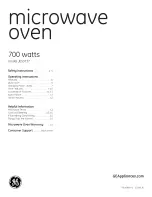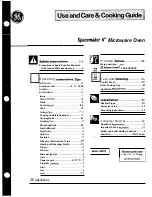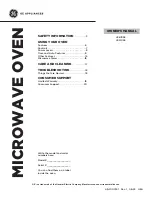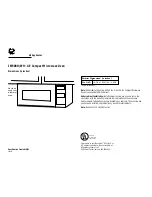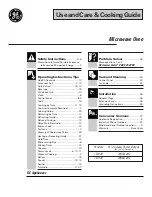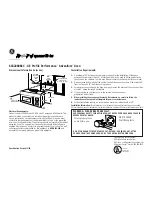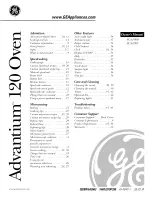
66
Problem Cause
Solution
Food cools quickly after being
MICROWAVED.
Food not cooked through.
Put back in oven for extra time.
Remember foods at fridge tem-
perature require more cooking
time than food at room tempera-
ture.
Rice pudding or casserole boils
over during cooking by MICRO-
WAVE.
Container too small.
For liquid foods, use container
twice the volume of food.
Food cooks too slowly when
cooked by MICROWAVE.
Oven not receiving correct
power.
Oven should be on an independ-
ent outlet.
Food temperature from fridge
colder than room temperature.
Extra time required for cooking
colder foods.
Meat is tough when cooked by
MICROWAVE or combination
Power setting too high.
Use reduced power level for
meats.
Meat salted before cooking.
Do not salt before cooking. Add
salt if necessary, after cooking.
Cake remains uncooked in
centre when cooked by MICRO-
WAVE.
Too short a cooking and/or
standing time.
Add extra cooking time/standing
time.
Scrambled or poached eggs
tough and rubbery when cooked
by MICROWAVE.
Cooking time too long.
Take care when cooking small
quantities of eggs, once spoiled
they cannot be saved.
Quiche/Egg Custards are tough
and rubbery when cooked by
MICROWAVE.
Power level too high.
Use reduced power levels for
these items.
Quiche/Egg Custards are tough
and rubbery when cooked by
Combination.
Cooked too long. Dish size larger
than stated in recipe.
Always check progress of food
as it cooks.
Cheese sauce is tough and
stringy when cooked by MICRO-
WAVE
Cheese cooked with sauce
Add cheese at the end of cook-
ing time. The heat of the sauce
will melt the cheese.
Common queries answered
F0003BM53BP.indd sec66
F0003BM53BP.indd sec66
2017/2/17 15:02:48
2017/2/17 15:02:48































